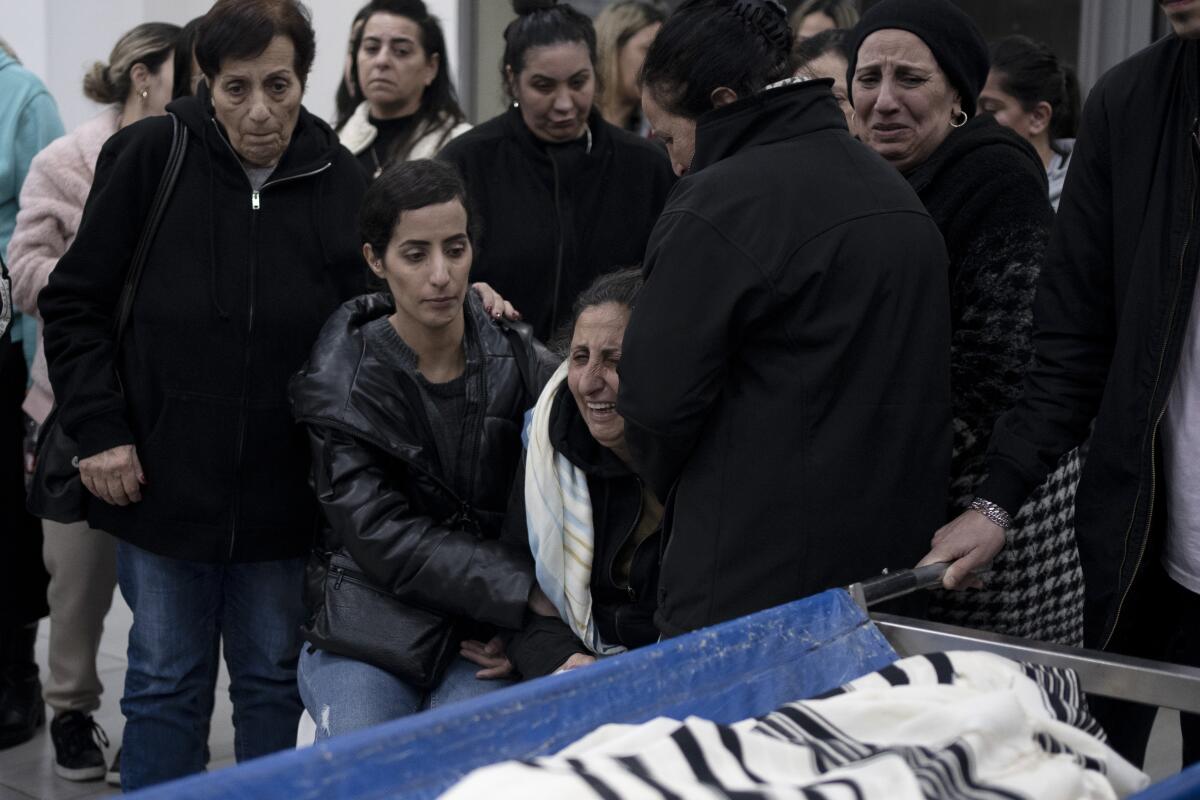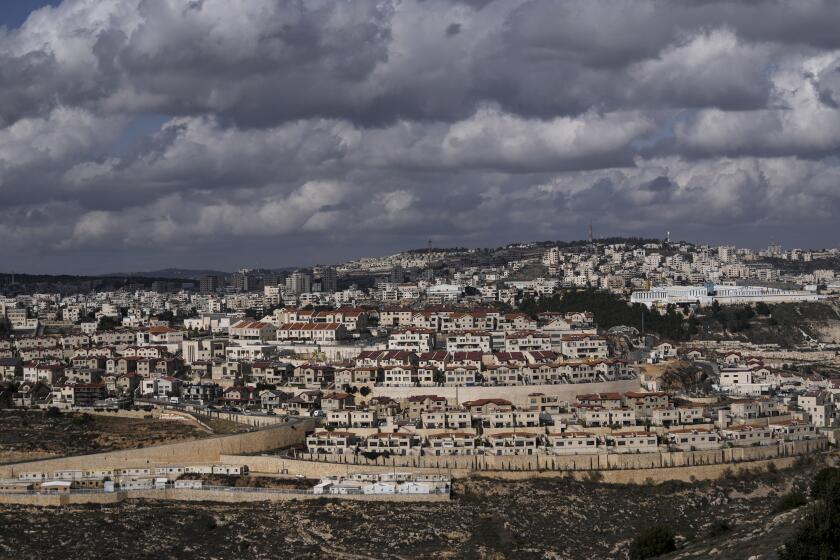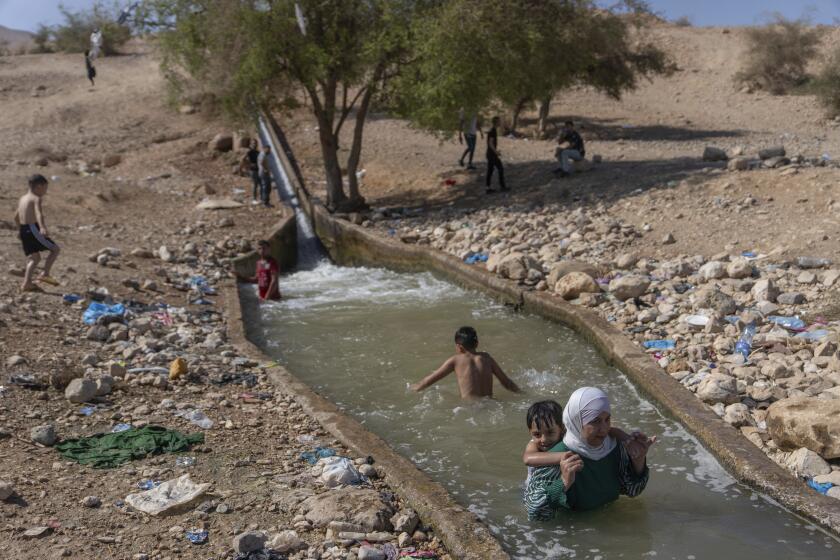Israel vows to build 3,300 new West Bank homes in response to deadly Palestinian attack

- Share via
JERUSALEM — Israel plans to build more than 3,300 new homes in settlements in the Israeli-occupied West Bank in response to a fatal Palestinian shooting attack, a senior Cabinet minister said. The decision drew an angry response from the U.S. at a time of growing tensions over the course of Israel’s war on Hamas in the Gaza Strip.
Israel’s finance minister, far-right firebrand Bezalel Smotrich, announced the new settlement plans late Thursday, after three Palestinian gunmen opened fire on cars near the Maale Adumim settlement, killing one Israeli and wounding five.
“The serious attack on Ma’ale Adumim must havea determined security response but also a settlement response,” Smotrich wrote on X, formerly Twitter. “Our enemies know that any harm to us will lead to more construction and more development and more of our hold all over the country.”
He said Prime Minister Benjamin Netanyahu and Defense Minister Yoav Gallant participated in the discussion. The decision will put in motion approval processes for 300 new homes in the Kedar settlement and 2,350 in Maale Adumim. It will also advance previously approved construction of nearly 700 homes in Efrat.
The number of Jewish settlers in the occupied West Bank now exceeds 500,000, with advocates predicting faster growth under Israel’s new government.
The Biden administration says it is seeking eventual Palestinian governance in Gaza and the West Bank as a precursor to a Palestinian state — which is opposed by Netanyahu and his right-wing government and is being further prevented, advocates say, as new settlement plans are advanced.
U.S. Secretary of State Antony J. Blinken said he was “disappointed” to hear of the Israeli announcement.
“It’s been longstanding U.S. policy under Republican and Democratic administrations alike that new settlements are counterproductive to reaching an enduring peace,” he said in Buenos Aires. “They’re also inconsistent with international law. Our administration maintains a firm opposition to settlement expansion and in our judgment this only weakens, it doesn’t strengthen, Israel’s security.”
The comments reversed the Trump administration’s position that settlements did not violate international law, a stance that broke with four decades of U.S. policy.
Consecutive Israeli governments have expanded settlements on land long owned by Palestinians in East Jerusalem and the West Bank, territories intended for a future Palestinian state, along with Gaza.
Across the dusty villages of the occupied West Bank, where Israeli water pipes don’t reach, Palestinians say they can’t get enough water.
Construction has accelerated under Netanyahu’s current right-wing government, in which settlers such as Smotrich hold key positions.
“Instead of acting in order to prevent future horrible attacks such as of yesterday, the government of Israel is acting to deepen the conflict and the tensions,” said Hagit Ofran of Peace Now, an Israeli watchdog group.
“The construction in settlements is bad for Israel, distancing us from peace and security,” she said.
Israel captured the West Bank, East Jerusalem and the Gaza Strip in the 1967 Mideast war; Palestinians maintain the land is theirs.
Violence has escalated in the West Bank since Hamas militants’ deadly Oct. 7 attack in southern Israel, which triggered Israel’s latest war in Gaza.
Gaza’s Health Ministry said Monday that more than 29,000 people, most of them women and children, had been killed there since Oct. 7.
Palestinians elsewhere have carried out several deadly attacks on Israelis since Oct. 7.
Israel keeps the West Bank under a tight grip, limiting movement and frequently raiding what it says are militant targets.
More than 400 Palestinians have been killed by Israeli fire in the West Bank during that period, the territory’s health officials say.
AP correspondent Matthew Lee in Washington contributed to this report.
More to Read
Sign up for Essential California
The most important California stories and recommendations in your inbox every morning.
You may occasionally receive promotional content from the Los Angeles Times.












